Boston Terrier Dog: Essential Guide to Traits, Care & Health
The Boston Terrier is a small, friendly dog known for its distinctive “tuxedo” coat and compact build. It originated in the United States and quickly became a popular companion due to its lively personality and polite nature. Boston Terriers make great pets because they are intelligent, sociable, and adaptable to many living situations.
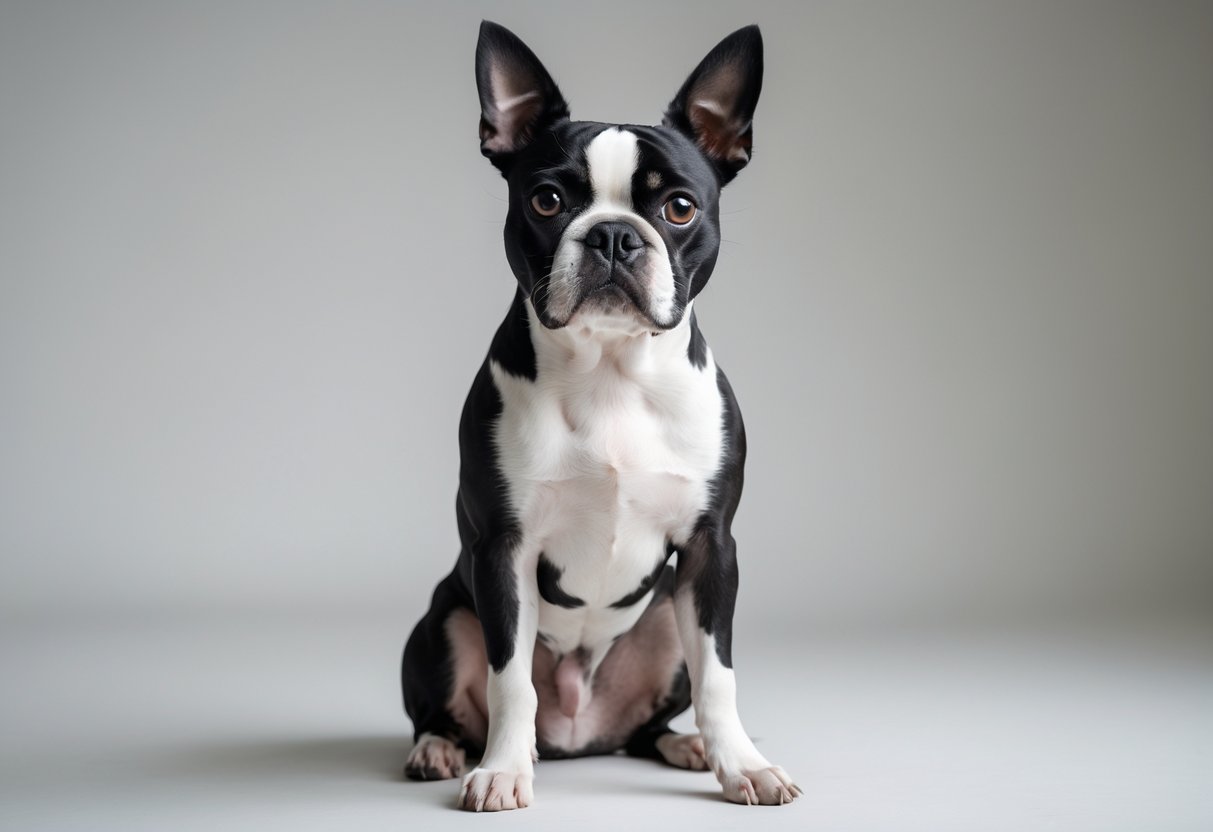
This breed has a cheerful temperament and is often called “The American Gentleman” because of its good manners and gentle behavior. Despite their small size, Boston Terriers are full of energy and enjoy playtime as well as affection from their owners.
Boston Terriers do need some special care, especially to help with breathing issues common to the breed. Proper grooming, regular vet visits, and early training can keep them healthy and happy, making them a rewarding companion for many families.
Key Takeways
- Boston Terriers have a friendly and adaptable nature.
- They require regular care to maintain their health.
- Their distinct appearance and personality make them a popular choice.
Boston Terrier Dog Overview
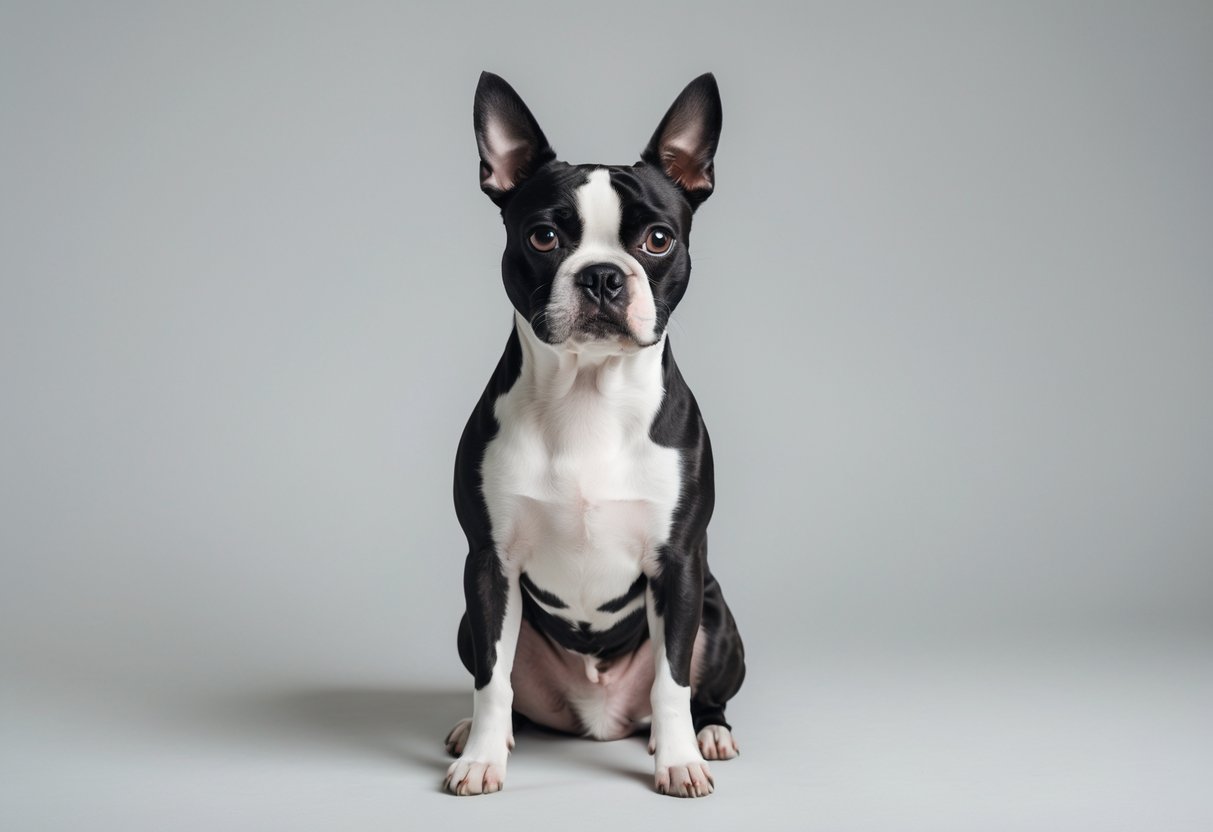
The Boston Terrier is a small, sturdy breed known for its unique coat and friendly nature. It has deep roots in American dog breeding and holds a special place among companion dogs for its manners and appearance.
Breed History and Origins
The Boston Terrier was developed in the late 1800s in the United States. It descends from crosses between the English Bulldog and the now-extinct English Terrier. Breeders aimed to create a smaller, well-mannered dog with a sharp look.
Originally, the breed was used for various tasks, including dog fighting, but it quickly became a beloved companion. Its compact size and lively personality made it popular in urban areas.
The Boston Terrier’s trademark tuxedo-like markings and muscular body come from careful breeding. This strong heritage reflects both strength and gentleness, capturing the best traits of its ancestors.
Recognition by the American Kennel Club
The American Kennel Club (AKC) officially recognized the Boston Terrier in 1893. This recognition helped standardize the breed’s characteristics, including size, coat, and temperament.
AKC standards call for a dog between 15 and 17 inches tall and weighing 12 to 25 pounds. The breed’s short, smooth coat has distinct black, brindle, or seal colors with white markings.
The AKC describes the Boston Terrier as intelligent and easily trained. It highlights their suitability as family pets and good companions for city living due to their adaptable nature.
The ‘American Gentleman’ Nickname
The Boston Terrier earned the nickname “The American Gentleman” because of its polite behavior and stylish appearance. The breed has a calm, friendly personality that makes it approachable and well-mannered.
The tuxedo-like markings on their coat give them a formal, classy look, reinforcing this nickname. Their big, round eyes add to their charming expression.
This nickname reflects the breed’s reputation for good manners without being overly formal. It is a balance of being both lively and respectful, which appeals to many dog owners.
Physical Characteristics and Appearance
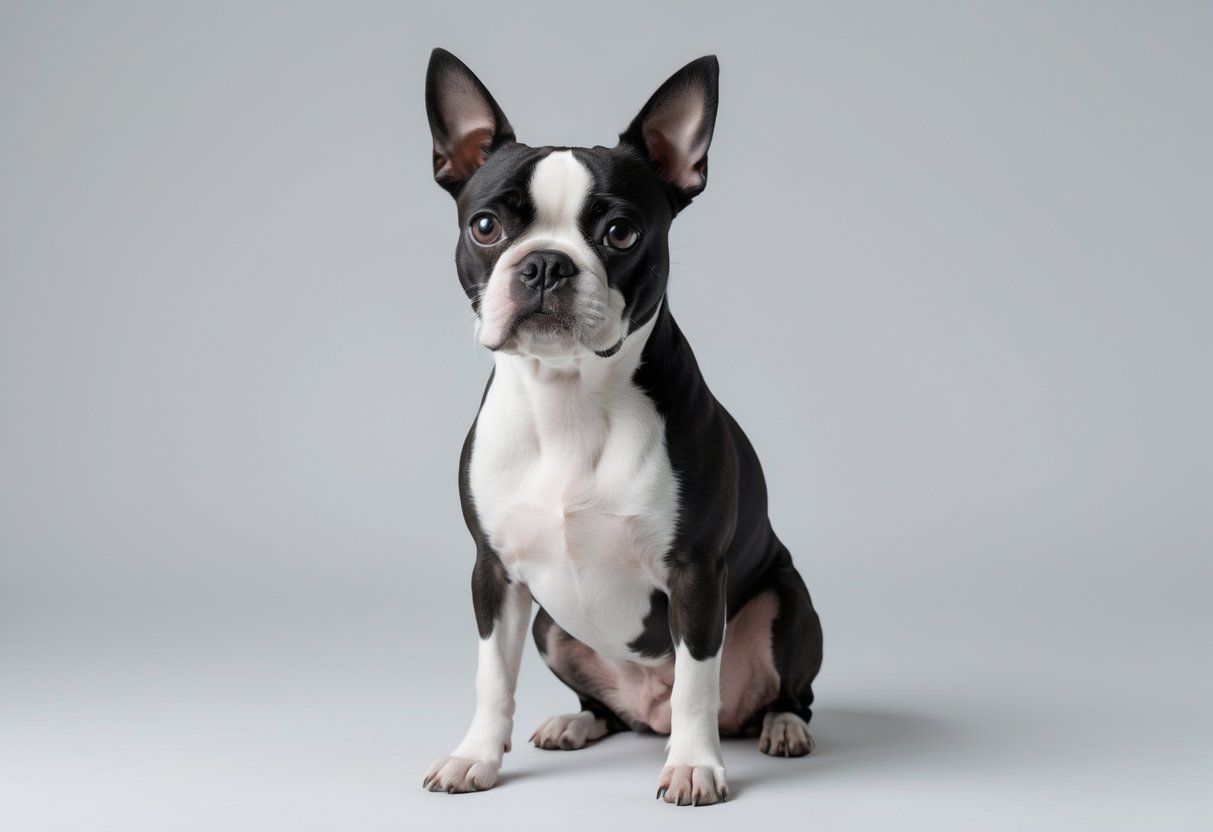
Boston Terriers have a compact, muscular build with clear features that make them easily recognizable. Their size, coat patterns, and facial structure give them a neat and distinctive look loved by many.
Size and Weight Ranges
Boston Terriers are small but sturdy dogs. They usually stand between 15 to 17 inches tall at the shoulder. Their weight ranges from 10 to 25 pounds, with males generally a bit larger than females.
Despite their small size, they have a solid, well-balanced body. Their chest is deep, and their back is short and broad. This gives them strength and agility uncommon for their size.
Distinctive Coat Colors and Markings
This breed’s coat is short, smooth, and easy to care for. Boston Terriers come in three main color patterns: brindle, seal, or black. Each has white markings, often on the chest, face, and sometimes the legs.
The white patches combined with the darker base color give the look of a tuxedo. This unique pattern is why Boston Terriers often are called the “American Gentleman.”
They do not shed much, which is useful for people sensitive to dog hair. Pattern baldness is not common in Boston Terriers.
Facial Features and Head Shape
Boston Terriers have a distinctive square-shaped head. Their skull is broad, and they have a short, flat muzzle. This gives them a flat-faced appearance common to brachycephalic breeds.
Their eyes are large, round, and dark, set wide apart for an expressive expression. Their ears stand erect, small, and pointed, adding to their alert look.
The short nose can lead to breathing issues linked to brachycephalic syndrome, so owners should monitor their dogs carefully during exercise or heat.
Temperament and Personality
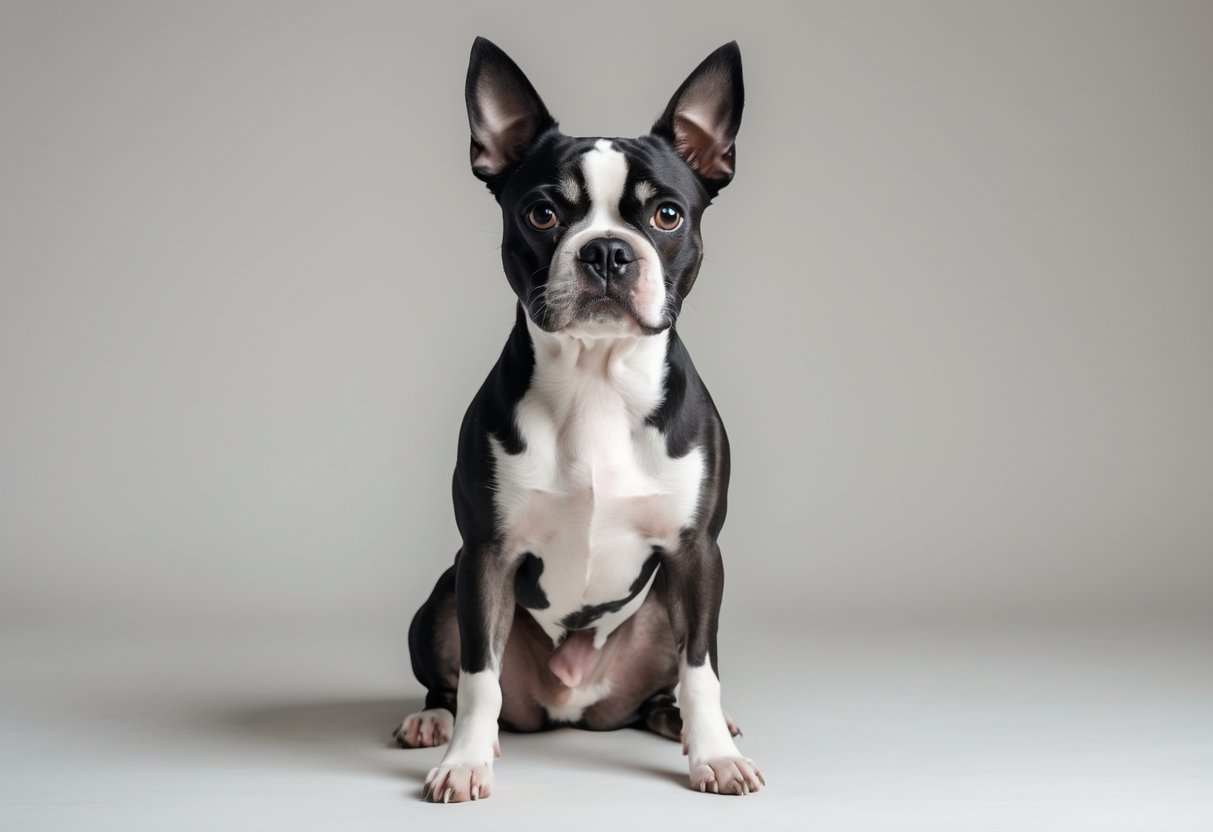
The Boston Terrier is known as the “American Gentleman” because of his polite and friendly nature. He is loyal and loves spending time with his family. This breed’s personality includes a mix of intelligence, affection, and a playful spirit.
Intelligence and Trainability
Boston Terriers are smart and quick to learn new commands. They respond best to gentle, positive training methods. Using treats and praise helps keep them motivated.
Sometimes, they can be stubborn, so consistent training is important. They may lose interest if lessons get too repetitive or boring. Keeping training sessions short and fun works well.
Because they are sensitive, harsh words or punishment can cause them to shut down. A calm, encouraging approach is key to helping them thrive.
Family Compatibility and Social Behavior
Boston Terriers work well with children of all ages. They enjoy playing alongside kids and are gentle, which makes them a safe choice for families.
This breed also gets along with other pets like dogs and cats if introduced early. They crave companionship and can develop separation anxiety if left alone for too long.
Their loving and loyal nature means they form strong bonds with every family member. They tend to follow their owners around the house, showing their need for closeness. The Boston Terrier’s friendly demeanor fits well in households of all sizes.
Playfulness and Activity Levels
Though primarily an indoor dog, Boston Terriers enjoy short outdoor play sessions. They prefer energetic games like fetch, frisbee, or flyball over long walks.
Exercise needs are moderate; a few playtimes or walks daily satisfy their energy. They should never be left outside alone, especially in extreme weather.
This playful breed has a lively spirit but also knows when to relax and cuddle. Their balance of fun and calm makes them great companions for both active and quieter owners.
Health Considerations and Common Conditions
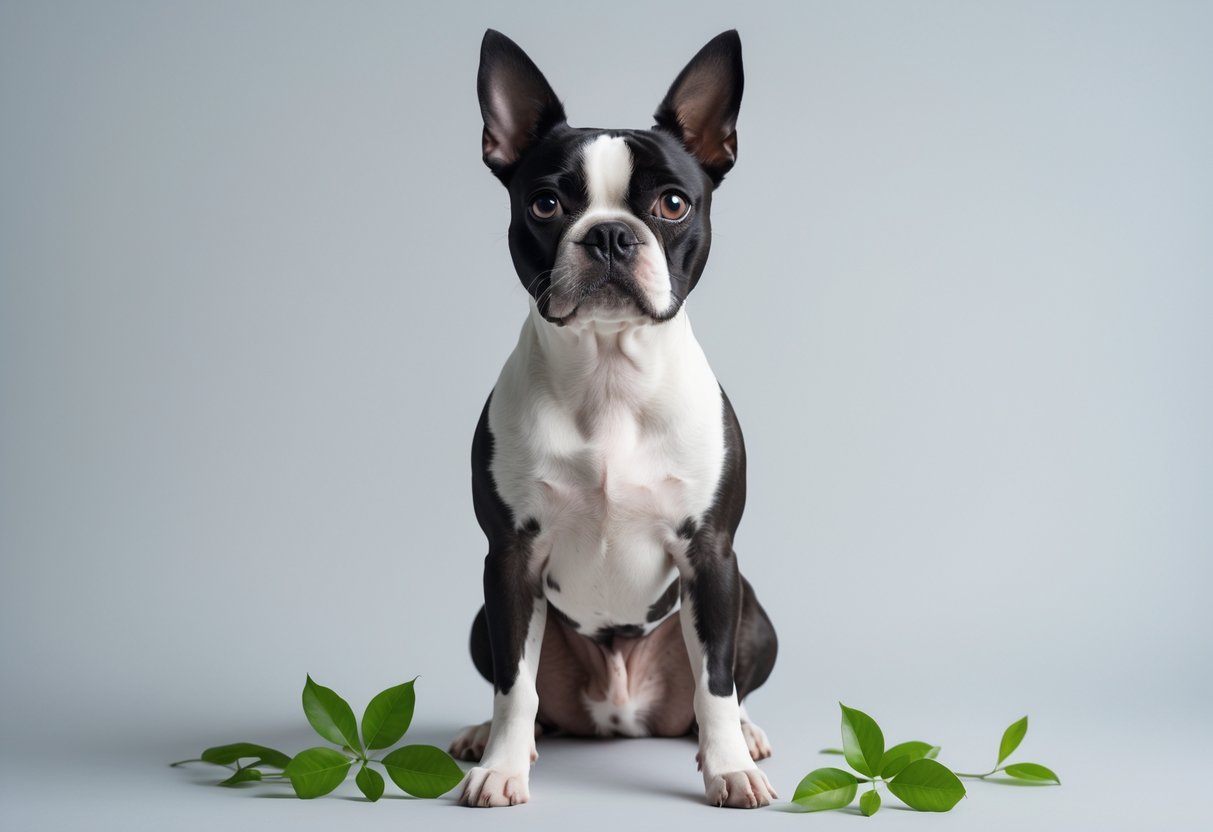
Boston Terriers have some specific health risks to watch for, mostly related to their body shape and genetics. Many of these issues affect breathing, vision, and joints. Knowing these helps owners spot problems early and manage their pet’s health better.
Brachycephalic Syndrome Risks
Boston Terriers are brachycephalic dogs, meaning they have a short nose and flat face. This can cause brachycephalic syndrome, which affects breathing. The main problems are a long soft palate that blocks the airway, narrow nostrils (stenotic nares), and tissues in the throat that can stick out and block airflow.
These features can make breathing hard during exercise or hot weather. Some dogs snore or snort loudly due to airway blockage. Severe cases may need surgery to improve breathing. A narrower windpipe or collapsing trachea can also occur, raising the risk of breathing difficulties. Getting a Boston Terrier from a responsible breeder reduces the chance of severe brachycephalic syndrome.
Eye Disorders
Boston Terriers’ large, round eyes are prone to certain problems. Common eye issues include cataracts, glaucoma, and keratoconjunctivitis sicca (dry eye). Cataracts appear as cloudy spots on the eye lens and can lead to vision loss if untreated. Glaucoma causes increased pressure inside the eye, which can be painful and cause blindness without treatment.
Dry eye happens when tear production is low, causing irritation and risk of infection. Signs include redness, squinting, and pawing at the eyes. Eye injuries, like scratches, are common due to their prominent eyes and should get immediate care. Regular vet check-ups can catch these issues early.
Genetic and Inherited Issues
Several inherited conditions affect Boston Terriers. Patellar luxation is a common joint problem where the knee cap slips out of place. It may cause limping or an abnormal gait and can become painful over time. Surgery may be needed in severe cases.
Hemivertebra causes abnormal spinal bones, which may lead to nerve problems like wobbliness or paralysis. Deafness can happen in one or both ears and is linked to genetics. A vet should evaluate hearing issues as infections can sometimes mimic deafness.
Other genetic concerns include allergies (atopy), causing skin redness and itching, and less common conditions like hyperadrenocorticism (a hormone disorder) and pattern baldness. Choosing a medically tested breeder helps lower these inherited risks.
Grooming and General Care
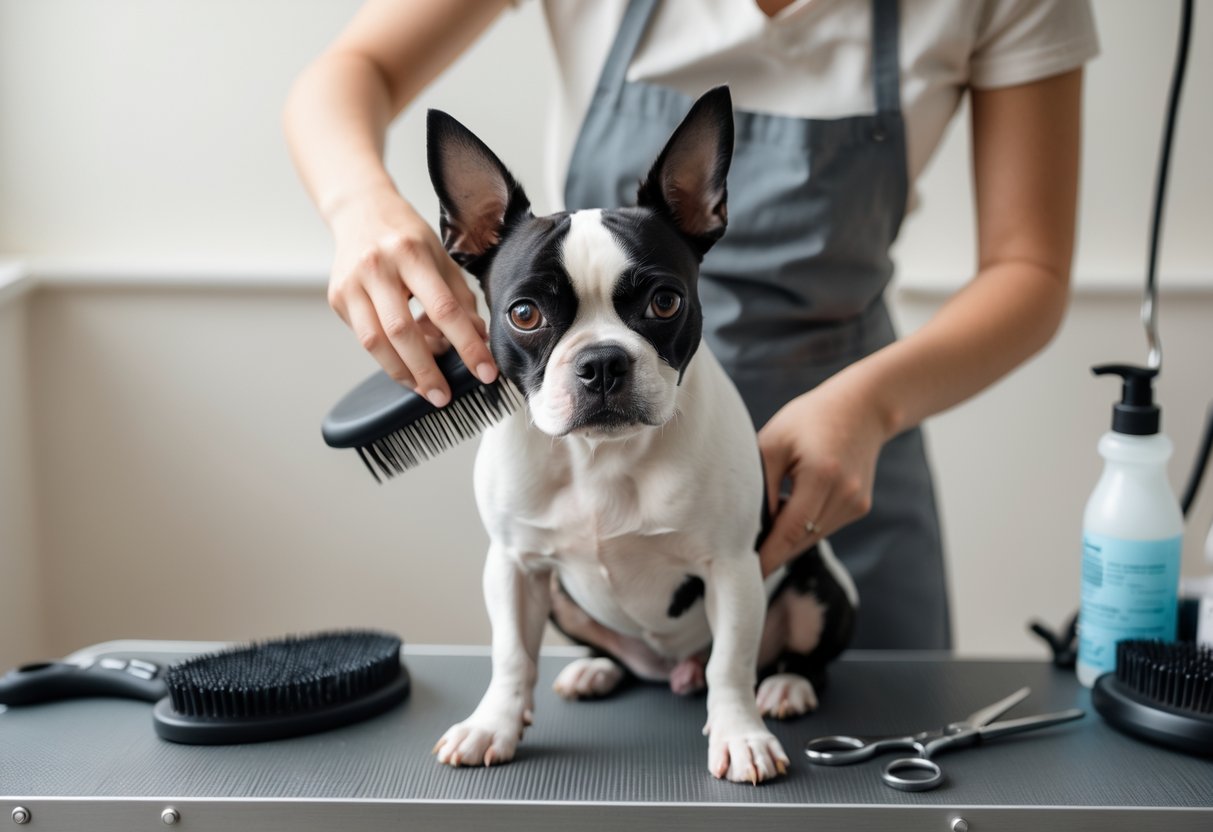
Boston Terriers need simple but regular care to stay healthy and comfortable. Their grooming mainly focuses on keeping their coat clean, nails trimmed, and preventing skin problems like pattern baldness. Proper attention in these areas helps maintain their well-being without requiring complex routines.
Coat Maintenance
Boston Terriers have short, smooth coats that do not require trimming or shaving. Brushing once a week with a soft brush or grooming mitt is enough to remove loose hair and reduce shedding.
Weekly brushing also spreads natural oils across the skin, keeping the coat shiny and healthy. Baths should happen every 4 to 6 weeks unless the dog gets dirty.
It is important to use dog-specific shampoo and rinse thoroughly to avoid skin irritation. Bathing more often than necessary can dry out their skin.
Nail Trimming and Hygiene
Regular nail trimming is essential for Boston Terriers. Their nails should be checked monthly and trimmed if they click on hard floors when the dog walks.
Long nails can cause discomfort and affect the dog’s gait. Nail care can be stressful for some dogs, so starting early or using a professional groomer is recommended.
Cleaning ears every few weeks also helps prevent infections. Over-cleaning, however, can lead to irritation, so it should be done sparingly.
Preventing Pattern Baldness
Pattern baldness is a skin condition that can affect Boston Terriers, causing hair loss in specific areas. It often results from genetics or underlying health issues.
To prevent this, owners should watch for early signs like thinning fur or itchy skin. Maintaining a healthy diet and regular grooming supports skin health.
If bald patches develop, it’s important to consult a veterinarian for proper diagnosis and treatment, which may include medication or special shampoos.
Training and Socialization
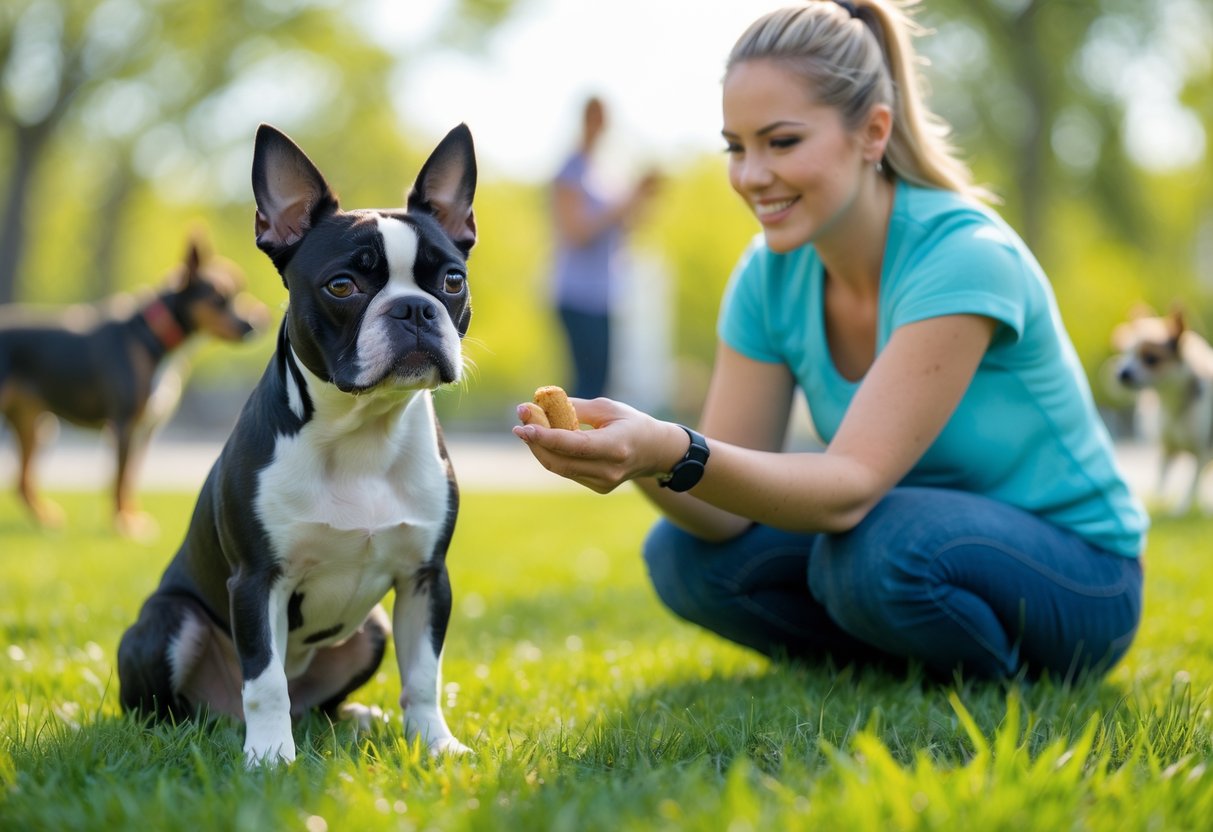
Training and socialization are essential for Boston Terriers to grow into well-mannered and confident dogs. Starting early and using clear, consistent methods helps prevent common issues like aggression or anxiety. Boston Terriers need guidance to understand their role in the family and how to behave around others, including pets.
Early Socialization Needs
Boston Terrier puppies should begin socialization as early as 7 to 8 weeks old. This early exposure to people, sounds, and other animals is critical. After about 16 to 18 weeks, it becomes harder for them to accept new experiences without fear or anxiety.
They should meet different types of people and dogs in safe, controlled settings. Positive reinforcement, such as treats or praise, helps Boston Terriers associate new experiences with good outcomes. Watching for signs of stress like tucked tails or avoidance is important to avoid overwhelming the puppy.
Obedience and Behavioral Training
Boston Terriers can be stubborn and need consistent training to learn good manners. Training should start as soon as possible, usually around 8 weeks old. Clear commands and a firm, calm approach work best.
Common rules include no jumping on people, no grabbing food without permission, and no chasing. Punishments like yelling or hitting are ineffective and harm trust. Instead, owners should use time-outs or removing attention as consequences.
Patience is key, as Boston Terriers take time to learn but respond well to steady routines and positive reinforcement.
Interaction with Other Pets
Boston Terriers are generally friendly but need careful introductions to other pets. Controlled meetings on neutral ground reduce the risk of possessiveness or aggression.
Owners should watch for signs of protectiveness around food, toys, or their humans. Early socialization helps Boston Terriers accept other animals calmly. If a Boston shows any aggressive behavior, training should address it promptly to avoid escalation.
Providing supervised playtime and separate resting spaces helps Boston Terriers and other pets build a peaceful relationship.
Living With a Boston Terrier
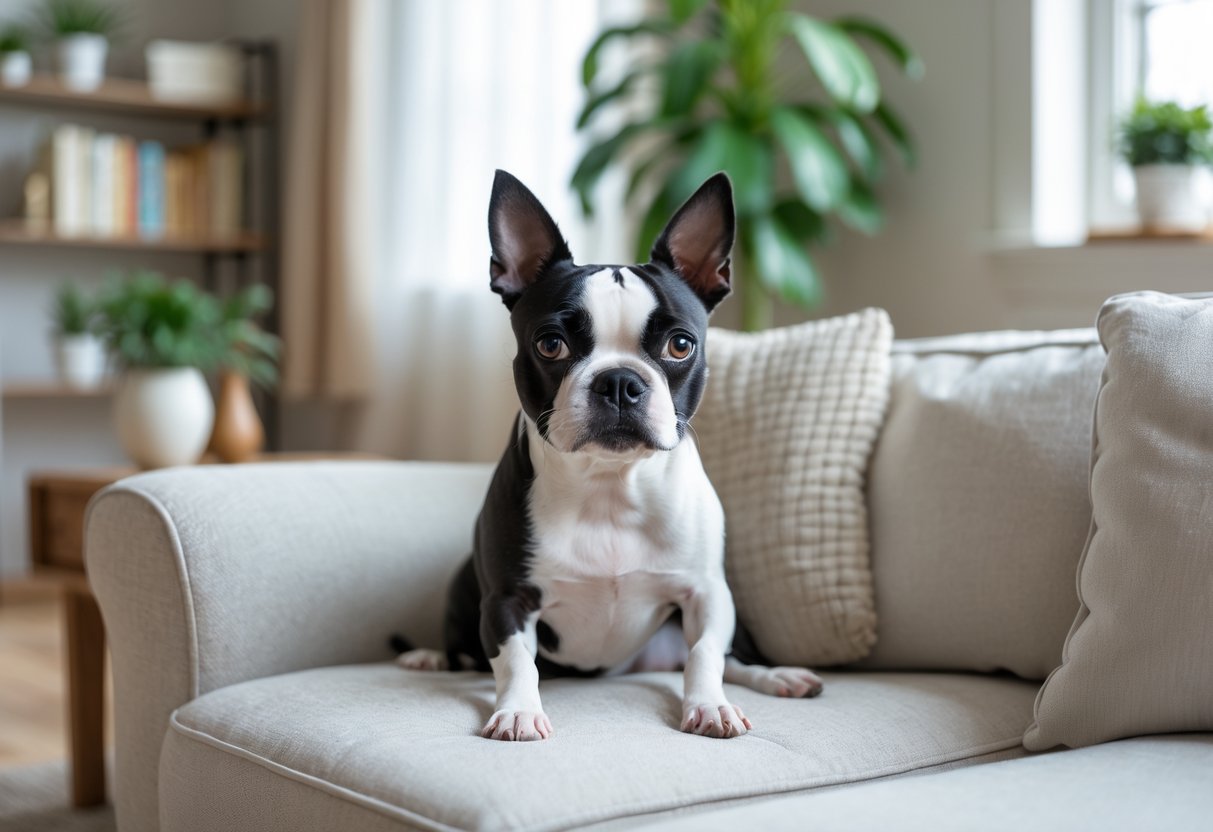
Boston Terriers are small, adaptable dogs that fit well into many home settings. They need regular exercise and mental stimulation. These dogs can become stressed if left alone for too long, so handling separation anxiety is important for their well-being.
Ideal Home Environment
Boston Terriers thrive in homes that are safe and comfortable. Their small size makes them well suited to apartments or houses with limited space. It is important to puppy-proof the home by securing cords, chemicals, and small items that could be harmful.
They benefit from having a designated place for sleeping, eating, and playing to help create a routine. Temperature control is important since Boston Terriers are sensitive to heat and cold due to their short coats. Fans or air conditioning in summer and warm clothes in winter help keep them comfortable.
Exercise Requirements
Although Boston Terriers are lively, their exercise needs are moderate. They usually enjoy short bursts of activity like fetch, tug-of-war, or quick walks. Ideally, they should get two or more short walks daily rather than a long, intense workout.
Mental activities such as puzzle toys or training sessions are essential to prevent boredom, which can lead to unwanted behavior. Their energy levels can vary, so owners should adjust exercise routines based on the dog’s age and health.
Handling Separation Anxiety
Boston Terriers are social dogs that often bond closely with their owners. They can develop separation anxiety if left alone for long periods. Signs include barking, destructive behavior, or restlessness.
To reduce anxiety, it helps to gradually increase alone time and provide engaging toys or puzzles. Crate training can offer a secure space. Maintaining a consistent daily routine gives Boston Terriers a sense of stability and reduces stress. Regular social interaction is also vital to their emotional health.
Working With Veterinary Practitioners

Boston Terriers need care that matches their specific health challenges. Working closely with veterinary practitioners helps owners catch problems early, choose the right experts, and maintain their dog’s health long-term.
Regular Health Screenings
Routine checkups are essential for Boston Terriers. These visits allow vets to monitor breathing, eye health, and weight. Since Boston Terriers are prone to respiratory problems due to their short noses, regular screenings help catch issues before they worsen.
Vets usually recommend annual exams, including dental checks and vaccinations. For older dogs or those with chronic conditions, visits may be more frequent. Consistent screenings also include monitoring for allergies and skin sensitivities common in the breed.
Choosing Experienced Professionals
It is important to choose veterinary practitioners familiar with Boston Terriers and brachycephalic breeds. Such vets understand their breathing issues, dental needs, and allergy management better than general vets.
Owners should ask about a vet’s experience with Boston Terriers and their approach to breed-specific problems. Checking reviews and asking for referrals from other Boston owners can help find skilled professionals. Access to emergency care or specialists is also a key factor.
Managing Lifelong Wellness
Boston Terriers need ongoing care beyond illness treatment. A veterinarian guides diet adjustments to prevent obesity, which can worsen breathing problems. Preventative dental care and allergy management are also vital.
Owners should work with their vet to create a wellness plan, including nutrition, exercise, and regular health checks. Open communication about changes in behavior or health ensures problems are addressed early and managed effectively.
Frequently Asked Questions
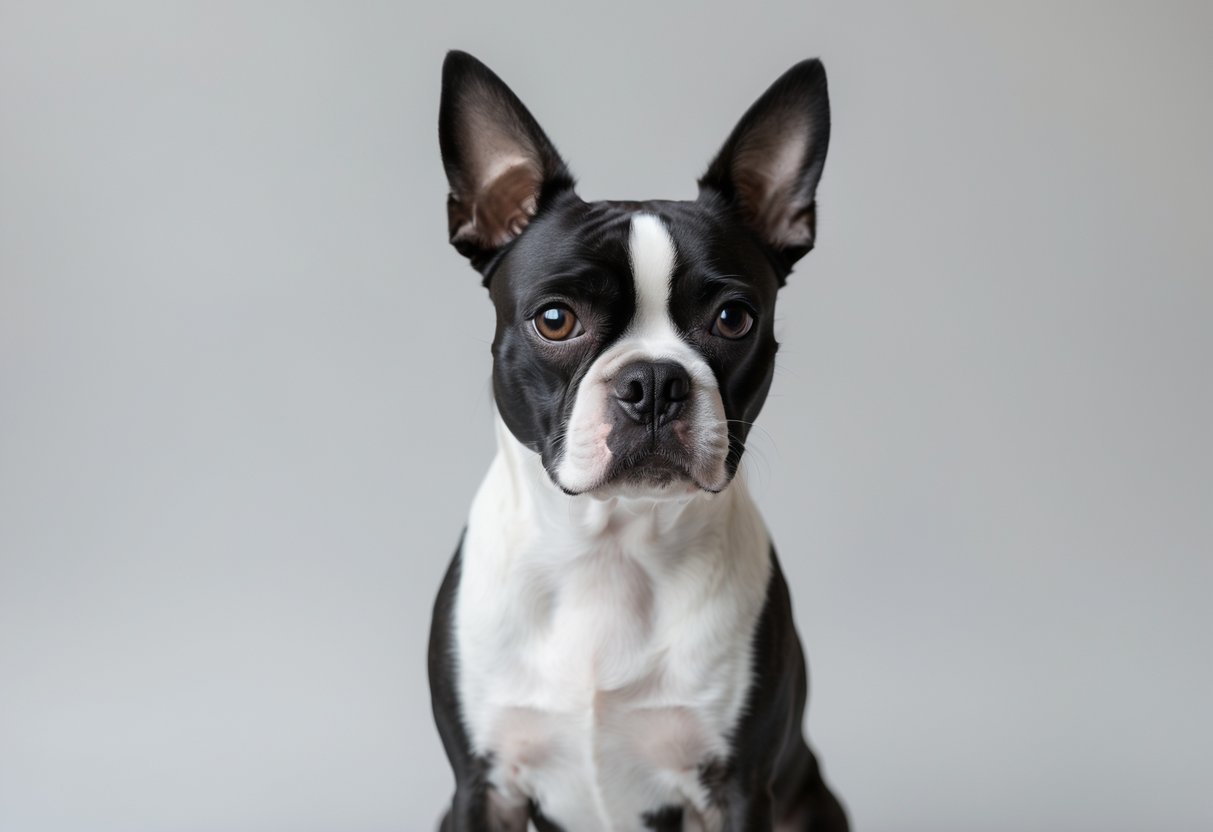
Boston Terriers are known for their friendly and adaptable nature. They have a moderate size, a range of coat colors, and specific care needs. Their health requires attention to common issues, and their lifespan is typical for small breeds.
What is the typical temperament of a Boston Terrier?
Boston Terriers are playful, affectionate, and social dogs. They are good with families, strangers, and other pets when properly socialized. Their friendly nature makes them well-suited for various living environments.
How long do Boston Terriers generally live?
The average lifespan of a Boston Terrier is between 13 and 15 years. With proper care, some may live longer. Regular veterinary check-ups help support a healthy life.
What are the common health issues in Boston Terriers?
Boston Terriers often face respiratory problems because of their short noses. They may also experience eye conditions and joint issues like patellar luxation. Routine vet visits and careful monitoring can reduce risks.
What is the standard size range for Boston Terriers?
Boston Terriers typically stand 12 to 15 inches tall at the shoulder. They weigh between 10 and 25 pounds. Their compact size suits apartment living and houses alike.
How does one care for a Boston Terrier puppy?
Boston Terrier puppies need about one hour of exercise per day, split into shorter walks. Their short coat requires minimal grooming but regular care for skin, eyes, ears, and nails is important. Early training and socialization help develop good behavior.
What variety of coat colors do Boston Terriers come in?
Boston Terriers have smooth, short coats. Common colors include black, seal, and brindle, each usually paired with white markings on the face, chest, and legs. This “tuxedo” look is a breed trademark.
